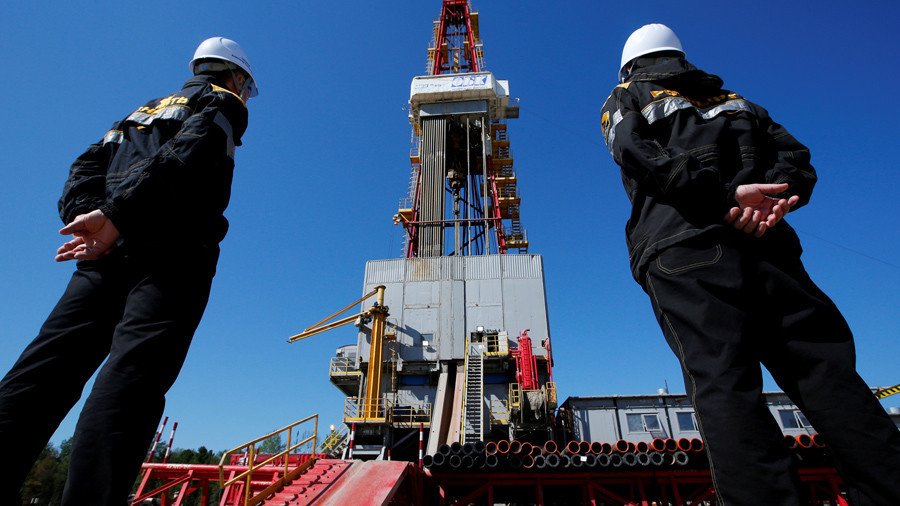Party like it’s 2014: Russian oil drillers reap profits not seen since days of $100 crude

Though current oil prices are still far from their peak of four years ago, Russian drillers are having best start to the year since 2015. And the key reason for that is the relatively-weak national currency.
Stocks in Russian energy companies have started the year with impressive growth thanks to increased prices for crude futures as well as the ruble exchange rate, which inevitably determine the sector’s earnings. As Russian officials prepare for another OPEC meeting in Oman this weekend, industry experts polled by Bloomberg expect the good times for the nation’s oil producers to continue.
This article was originally published on Oilprice.com
Oil hits highest level since 2015 as Russian-Saudi output cuts bring result https://t.co/gCW7UiNhsSpic.twitter.com/61o35UnVy2
— RT (@RT_com) January 9, 2018
While, for global energy markets, Brent sweet crude futures are still $50 below the high of 2014, for Russia’s producers the price of the benchmark crude in rubles is approaching a record. The federal financial regulator is expected to limit the upward potential for the national currency this year and even evoke its temporary weakness, according to analysts at UBS Group AG, as quoted by the agency.
Russia’s oil and gas indices may grow by up to 30 percent in 2018 with investors yet to price in Brent at $70 per barrel, according to Sberbank CIB.
“The ‘sell’ side is assuming an average oil price of $55 per barrel for 2018. Should the oil price stay at the current level, we will see a wave of earnings upgrades,” the bank’s analysts said.
Since the beginning of the year the appeal of Russian oil and gas shares has been actively outstripping their European rivals in terms of dividend yields. According to Citigroup, 2018 will become the second “year of the dividend” for Russian stocks due to improved earnings outlooks.
#Russia doubled its crude oil export capacity to #Chinahttps://t.co/Jyh5CEASkK
— RT (@RT_com) January 3, 2018
At the same time, the Russian energy sector may face some risks as US Treasury Department is set publish another report on potential new penalties against Moscow at the end of January. However, analysts at Bank of America Merrill Lynch don’t expect a tougher stance on the Russian economy and corporate sector. The high volatility of oil and the ruble, along with introducing higher taxes on the producers, are seen as another risk for the Russian energy sector, Citigroup said.
Brent was trading at $68.69 per barrel on Friday, pulling back by 0.87 percent. The American crude benchmark WTI is down close to 1 percent to $63.37.
For more stories on economy & finance visit RT's business section














